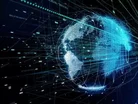Afraid a digital world means less human intelligence? Don’t be.

Last year’s highly publicised Artificial Intelligence (AI) debate, between tech giants Elon Musk, Mark Zuckerberg and more recently, Bill Gates brought to the fore some questions at the back of everyone’s minds: how sustainable is humanity with AI ever encroaching? Is technology taking over? Is there cause for alarm?
The impact of technology is being felt in every aspect of our lives, almost unbeknownst to us. Last year’s Black Friday highlighted how dependent we have become on technology to get what we want, as systems and servers dropped like flies under the pressure of user demand. In fact, online shopping has become so prevalent that seemingly indestructible retail giants have fallen prey to its takeover. The Internet has become our on-demand source for everything, and connectivity to the Web is now seen as a basic human right, akin to water or electricity.
This pervasive reliance on technology lends a certain credence to fears that humanity is slowly being engulfed by technological innovation. Even cyber security, our defence against the rising tide of cybercrime, is consistently viewed with wariness, thanks to its association with Big Brother like controls and connected everything.
Fear, however apparently substantiated, is debilitating. Fear stems innovation and enables nothing. To avoid returning to the “dark ages” before the Internet; in order to drive rather than curb the transformation evolution we are experiencing; we need to figure out how to lean into this fear to create opportunities that enable us to surmount it.
Truthfully, this is not the first time we have faced radical technological changes that impact humanity with such pervasive force. This pace, depth and breadth of current changes, however, is unique. Innovation is happening at such a rate, the landscape constantly changes and we, as a people, have become more adaptable than ever before.
Proponents of the digital age, including Artificial Intelligence (AI), Big Data, and Cognitive Learning, are all going to be such integrated parts of life that they will no longer be terms we speak of, but simply how we live. Business models will be forced to change, propelling organisations into the future through automation and IoT. This of course, catches on the fear around the impact on jobs.
The question of the impact on jobs is one which is raised time and again, particularly in the face of AI and robotics. These technologies, while replacing many of the more onerous and automatable functions, also serve to open up a world of new career possibilities. However, replacing people with machines is not where the growth is.
The answer becomes how to use technology to augment human capability, not replace it. To leverage innovation to enhance tasks where intuition or human experience are hindering the goals of zero defect quality and optimal efficiency. To supplement those daily responsibilities carried out by people that can better serve in areas where human intervention and activity is still critical. To focus on core business.
Many organisations are already embarking on upskilling their workforce, and retooling them to address functions that require more neural thinking and human interaction. In this way, people are uplifted and offered new opportunities to expand their capability. Organisations then engender an environment which is favourable towards - and not resistant to - innovation.
leads us to the question of intelligent technology creating a lazy and un-intelligent society. I believe the opposite is true. As technologies such as IoT, AI and analytics pave the way to a better way of life for us by removing our focus on those tasks which can easily be automated, it also promotes a society which centres on learning, innovation and developing elevated skills. When we no longer rely on people to carry out menial tasks, we can push them to move beyond the mundane - to transcend to a more effective, more efficient, more intelligent species.
We can fear. We can block change and stem the tide of innovation. Or we can embrace it, be proactive, and evolve.
Mpumi Nhlapo is the Head of T-Systems South Africa’s Marketing, Communications, IT Portfolio and Solution Sales.
Featured Articles
SAP has announced it has appointed a new President for a newly-created EMEA region, aiming to make the most of the opportunities of cloud and AI technology
Technology giant SAP has expanded its portfolio with the acquisition of LeanIX, a leader in enterprise architecture management (EAM) software
To help businesses achieve increased productivity, Siemens and Microsoft are deepening their partnership by showcasing the benefits of generative AI

